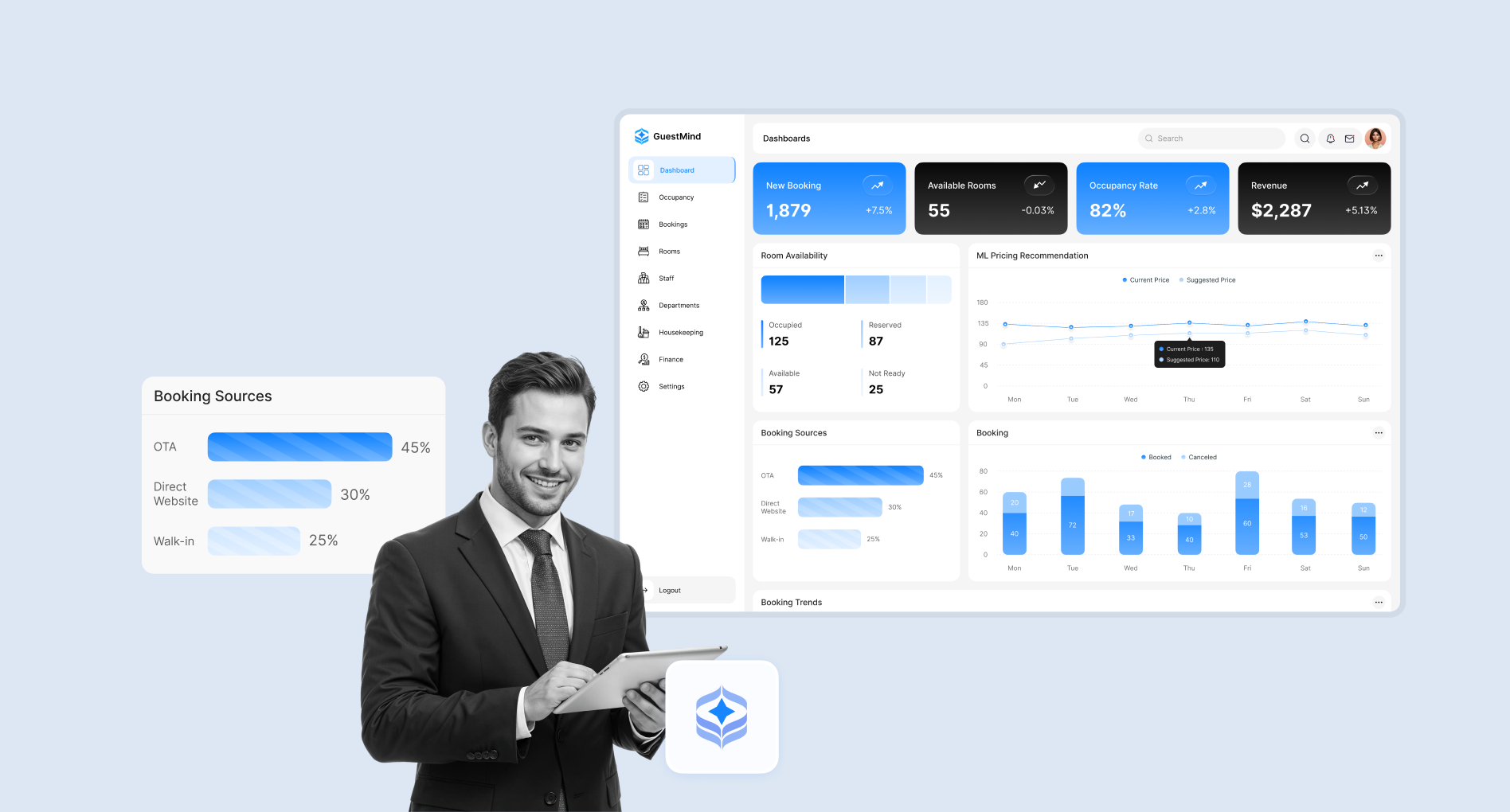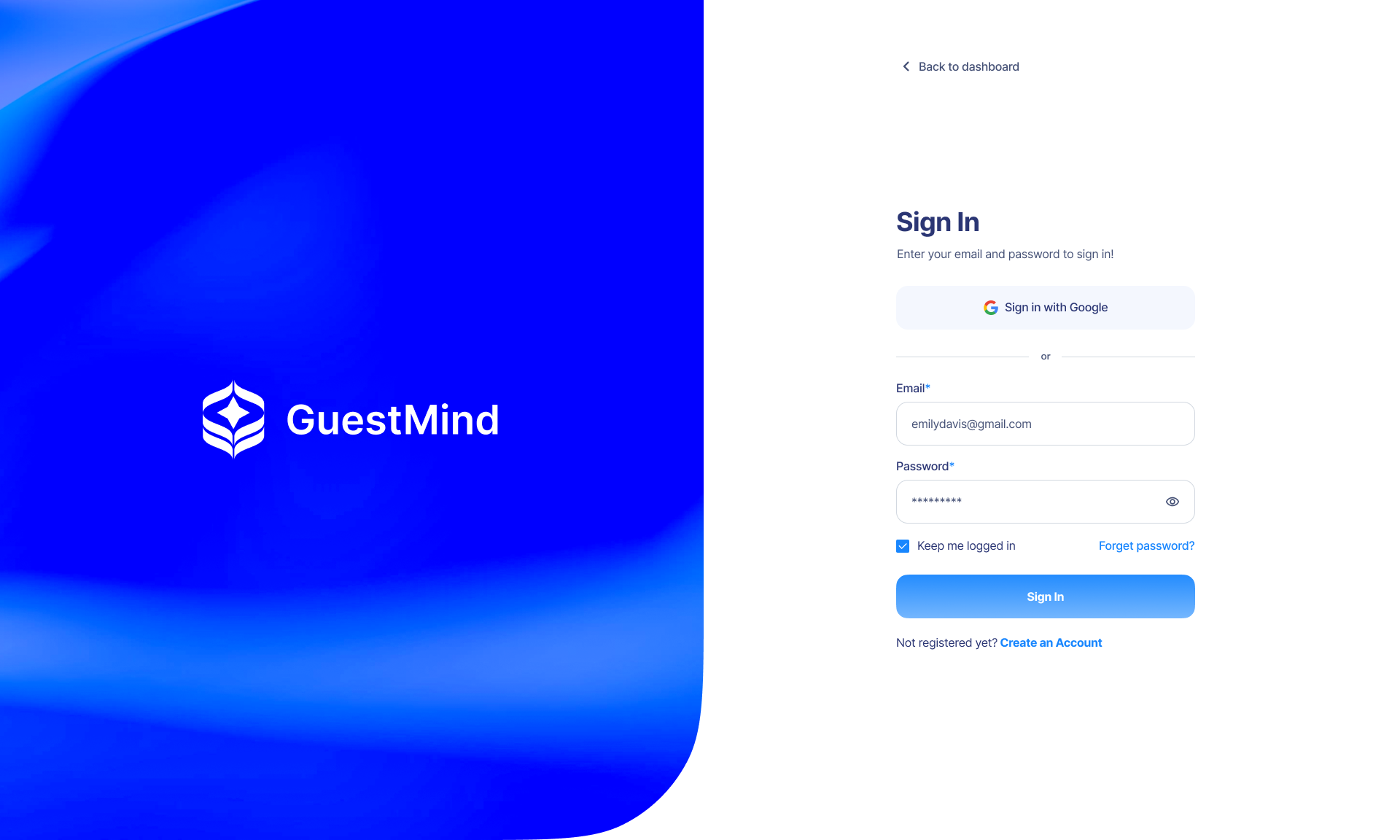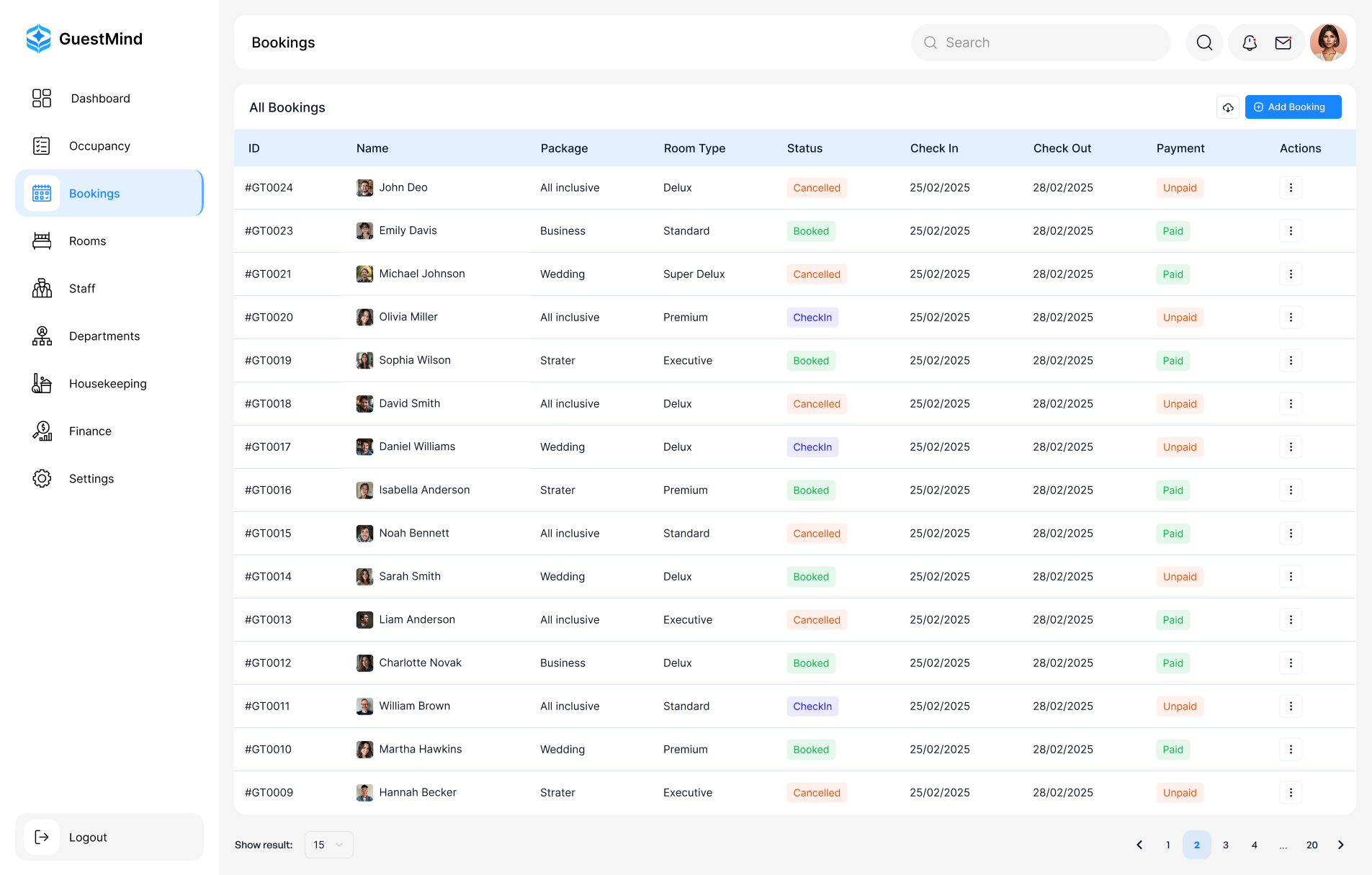

The client approached us to build a machine learning-based software that dynamically determines optimal room rental prices across multiple hotel booking platforms. The solution leverages competitor listings and market trends using a K-Nearest Neighbors (KNN) model to forecast daily pricing. We also delivered interactive dashboards for real-time decision-making and improved revenue accuracy.

Our client discussed several business objectives at the beginning of the project execution. So, here are detailed goals and vision of the client for their project.
The client wasn’t sure about the price point, yet they were to retain profitability. They wanted pricing to be suitable, competitive, and affordable for customers.
If price is too low, chances of revenue will be lower. And if its too high, there might not be too many customers. Ultimately, they might lose revenue and customers.
Hotel industry includes several variables, such as number of beds, bedrooms, bathrooms, guest capacity, which all affects pricing.
The client was lacking strong visibility in making pricing decisions, which was a major challenge for them to sustain in the market.
We built ML model that foresee rental pricing on similar listing by using their prices averages as reference.
Severa variables like bedrooms, beds, guest capacity are included as feature of this model.
Our solution includes graphical representation based on different criteria like accommodation, bedrooms, beds, bathrooms, etc.
Process flow: find similar listings → average their prices → set listing’s price to that average. It starts automating the entire manual process.



Since pricing is competitive, the property becomes more appealing, which is likely increasing occupancy.
Our client was struggling with setting optimal pricing per room, which is why they were incurring losses.
Out client was having insider information of what their competitors are charging, what it includes, which has helped building strategies.
SPEC House, Parth Complex, Near Swastik Cross Roads, Navarangpura, Ahmedabad 380009, INDIA.

This website uses cookies to ensure you get the best experience on our website. Read Spec India’s Privacy Policy